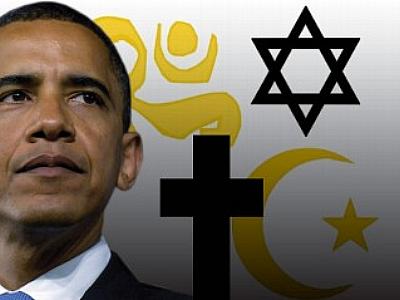Most American Say Lawmakers Should Be Religious
By The Pew Research Center | Окт 22, 2010

According to a research recently conducted in the United States, though the public expresses reservations about churches’ involvement in politics, there is widespread agreement that politicians should be religious. Fully 61% say it is important that members of Congress have strong religious beliefs; just 34% disagree.
Majorities across all major religious groups – with the exception of the religiously unaffiliated – agree it is important for members of Congress to have strong religious beliefs. More than eight-in-ten white evangelical Protestants (83%) express this view, as do roughly two-thirds of white non-Hispanic Catholics (66%) and white mainline Protestants (64%). And about seven-in-ten black Protestants (71%) say it is important that lawmakers have strong religious beliefs.
In contrast, by more than two-to-one (66% to 30%), the religiously unaffiliated disagree that it is important for members of Congress to have strong religious beliefs. Among atheists and agnostics, fully 85% say it is not important for congressional representatives to have strong religious beliefs.
The public continues to be divided about the level of religious expression among political leaders. Nearly four-in-ten (37%) say there has been too little expression of faith by political leaders; 29% say there has been too much, while 24% say political leaders speak on faith and prayer the right amount. These opinions have changed little in recent years.
Majorities of white evangelical Protestants (56%) and black Protestants (51%) say there has been too little expression of faith by political leaders. Only about three-in-ten white mainline Protestants (31%) and white Catholics (30%) agree.
The religiously unaffiliated continue to say there has been too much – rather than too little – expression of religious faith by political leaders. Fully 53% of the religiously unaffiliated say that politicians speak too much about faith and prayer.
Across all religious groups, roughly half (52%) of those who say they attend worship services weekly or more think politicians talk too little about their faith, compared with about one-third (32%) of those who attend services monthly or yearly and just 21% of those who seldom or never attend services.















